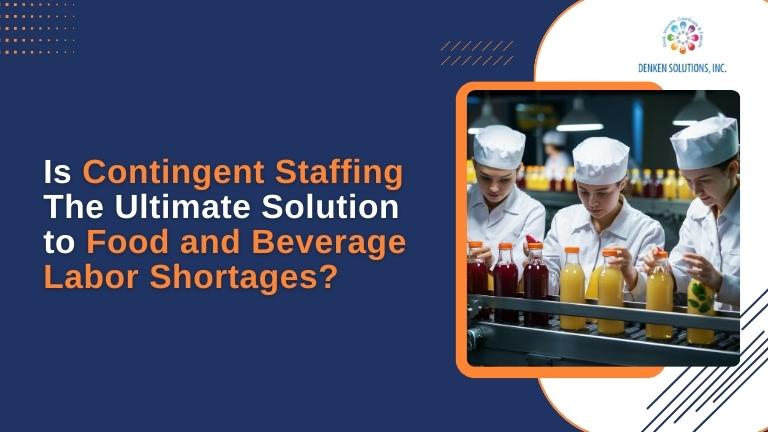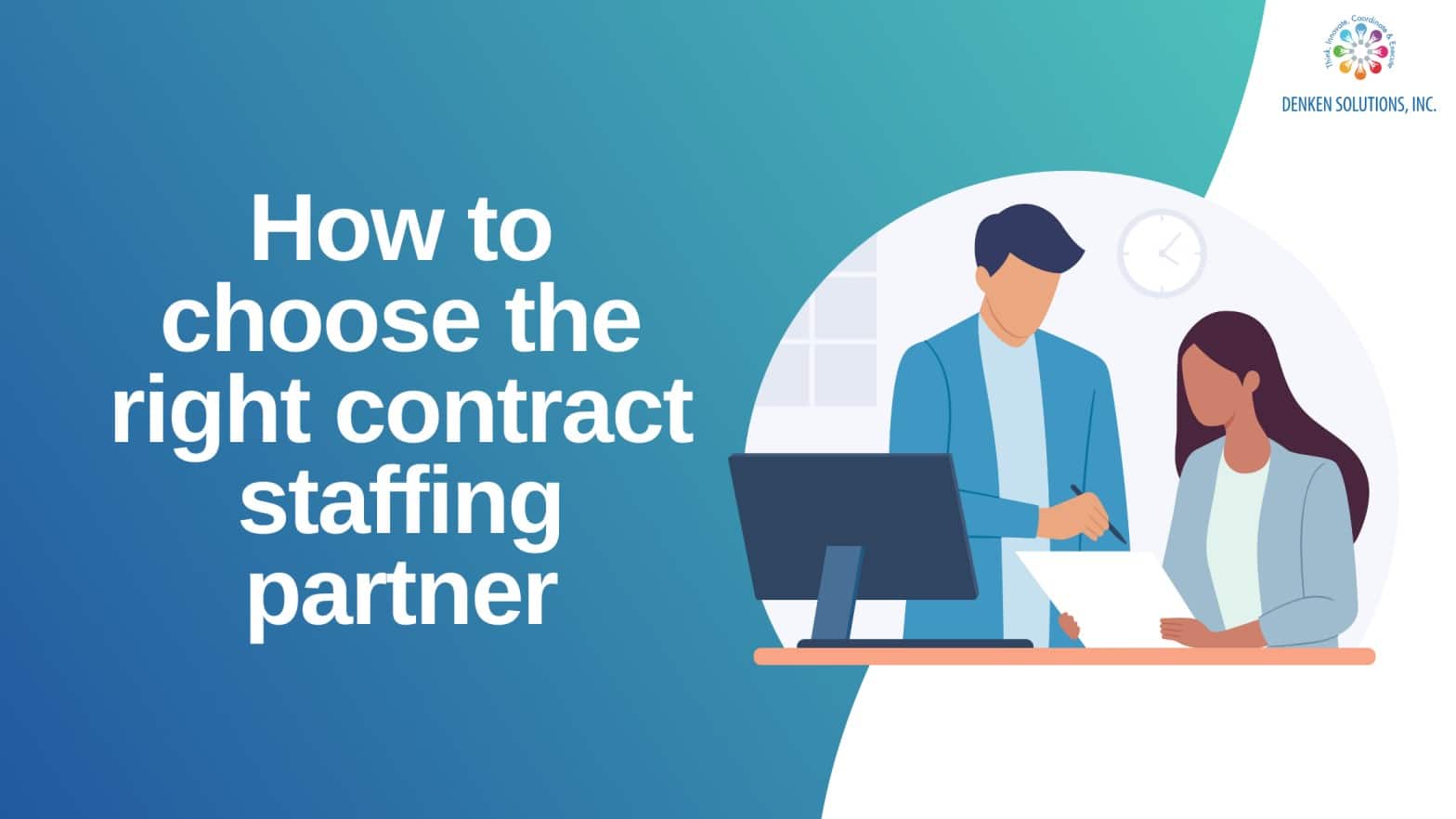From small restaurants to large-scale manufacturers, all companies operating in the food and beverage industry are struggling hard to close the labor shortages occurring due to a combination of factors over the past decade. Alongside the ups and downs of the food and beverage market ever since the pandemic, employers are trying to combat the generational gaps resulting from the aging population. To address the labor shortages and enhance operational efficiencies, many employers have switched to contingent staffing in food and beverage to develop a flexible workforce.In this article, we will explore how contingent staffing in food and beverage can help address the labor shortages in the industry. But before that, let’s understand what is driving the F&B labor shortages.
What is behind the F&B labor shortage?
The latest report published by Expert Market suggests that one of the key factors that is raising concern in the food and beverage industry of the United States at present is the labor shortage. While the digital transformation in the operational areas has made the employment landscape in this industry quite competitive, there are a number of factors that have contributed to the issue of labor shortages. Some of these factors are:
- The shifting preference of employees from in-office to hybrid and remote work: With the surfacing of remote and flexible work norms ever since the COVID-19 pandemic, food and beverage job seekers and workers are finding employment opportunities that would offer them a decent work-life balance.
- The booming of the ageing population followed by skill gaps: Another crucial factor driving the F&B labor shortages is the aging population of the U.S. The rise of tech-savvy roles in the digital era makes it challenging for employers to fill in those emerging positions with the aging workforce, leading to skill gaps.
- The cracks in hiring, training, and development strategies: In addition to the retiring population, the inefficiencies of F&B employers in streamlining their hiring processes or implementing proper training, upskilling, and development programs also contribute to the skill gaps and labor shortages.
- The lack of competitive compensation and employee benefits, especially during seasonal peaks: Many food and beverage employers fail to recognize the need to attract and retain talented professionals by means of competitive salaries, perks, and benefits. As a result, the majority of workers in this industry tend to quit jobs facing excessive stress due to high workloads and inadequate pay, particularly during seasonal peaks.
To learn about how contingent staffing in food and beverage companies can prove to be fruitful during seasonal highs, click here.
How contingent staffing in food and beverage can mitigate labor shortages?
- Optimized hiring process; access to best talents in no time
When food and beverage employers opt for contingent staffing with the help of reputable and experienced staffing agencies, they get to witness an optimized hiring process. Such staffing firms own a large pool of pre-screened candidates who are ready to take up contingent job roles, which means that employers do not have to invest time in searching for the right candidates. Moreover, from screening to onboarding, all chores related to hiring are taken over by the agency, thereby cutting down the overall time-to-hire.
- Reduced additional expenses related to fixed, full-time employment
With contingent staffing in food and beverage, employers get the chance to eliminate overhead costs associated with full-time employees. Companies usually choose contingent workers to execute short-term project goals or fulfill on-demand business needs. As such, employers do not have to commit them to long-term employment that generally comes with certain benefits and perks. Besides that, proficient contingent workers come with niche expertise that eliminates the need for making them go through rigorous training that further optimizes the company’s budget.
- Reduced stress levels and improved job satisfaction
As mentioned earlier, the food and beverage industry is often loaded with increased work during seasonal highs or business demands. During such times, employers may consider blending their existing teams with a contingent workforce so that the day-to-day tasks and responsibilities could be efficiently distributed among all. This will help in reducing the stress levels of full-time employees, thereby improving their job satisfaction and enabling them to find a better work-life balance. This will further prevent them from leaving jobs during the needs of the hour, boosting the employee retention rate.
- Diverse, inclusive, and knowledge-sharing work culture
Through contingent staffing in food and beverage, employers get access to connect with talented professionals across borders. This helps them to promote a diverse and inclusive work culture, thus elevating their brand image and reputation. Diverse contingent workers infuse fresh ideas and unique perspectives into teams, nurturing a knowledge-sharing culture and helping to stimulate innovative strategies for business.
- Heightened flexibility and scalability during needs of the hour
Another major advantage that employers get by opting for contingent staffing in food and beverage is the ability to scale their operations and refine their workforce strategy during critical times. For instance, to meet seasonal demands and fulfill the increasing workload, employers can engage contingent workers for the time being and release them during the off-season. Likewise, contingent workers can be re-hired when the business demands or project requirements surface again. Hence, contingent staffing in food and beverage helps businesses to remain flexible and competitive even in the face of market uncertainties.
Conclusion
There are consistent labor shortages observed in the food and beverage industry occurring due to changing worker preferences since the pandemic, the retiring population, ineffective hiring, training, and upskilling practices, and the absence of proper compensation, benefits, and perks during seasonal highs. To address these factors and mitigate the F&B labor shortages, employers must consider creating a flexible workforce through contingent staffing. Contingent staffing in food and beverage can help optimize the hiring process, reduce additional costs, boost employee retention rate, promote a diverse, inclusive, and knowledge-sharing culture, and elevate flexibility and scalability during critical periods.
If your food and beverage business is struggling hard to overcome the labor shortages, it is high time that you switch to a flexible F&B staffing solution. At Denken Solutions, our contingent staffing solutions are specifically designed to suit the unique needs and demands of the food and beverage businesses. Reach out to us to secure your F&B business with contingent staffing solutions!



